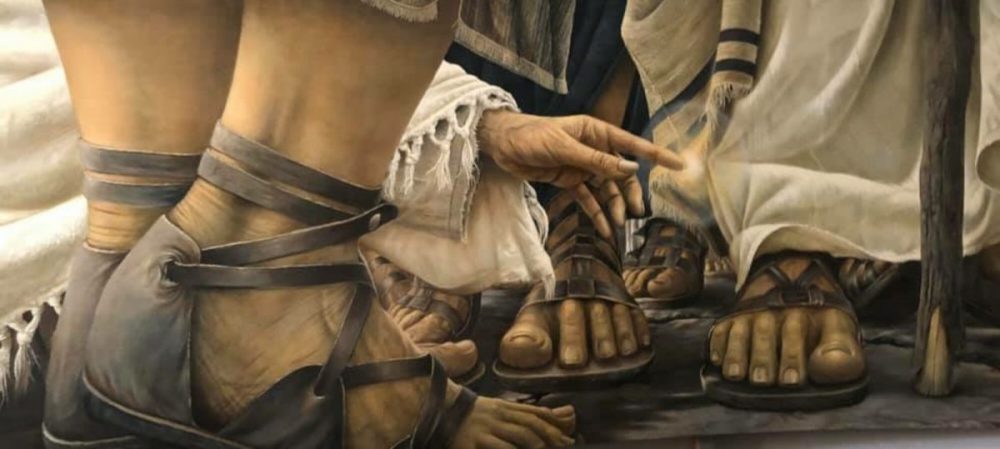When reading the Old Testament, especially the Torah- the five books of Moses, it is easy to get bogged down in all the rules, rituals, and regulations we see. Many of us will look at them as restrictive and outdated. And, since they have no application for our life today, why bother reading them? After all, we are a New Testament church, so the Old Testament laws don’t apply to us, right?
Actually, they do. In fact, the laws of the Old Testament form the foundation of our faith in the New Testament. We need the Old Testament to understand what God is doing in the New Testament, so it is important to have a proper perspective about the Old Testament and why all the laws are there. One of the best places to start is in our understanding of the word Law. When we think of laws, we think of rules that restrict and punish. However, the Jews don’t see it that way. In the Old Testament, the word that is often translated into the word Law in English is the Hebrew word Torah. This word can mean law, but it is more often looked at as direction or instruction.
God did not give Israel His laws (Torah) to restrict them but to instruct them in a way that will allow them to experience His blessings. He was giving them guidelines on how to live in a way that will bring “shalom”: peace, wholeness, and completeness. His purpose was not to place them under legalistic bondage to rules, but instead to help them enjoy the freedom that comes from a relationship with Him. In fact, God’s goal throughout the Bible is reconciliation: to restore everything to the way He originally intended it to be.
God created man to have an intimate relationship with him forever. Sin, however, shattered that relationship, and everything God has done since then has been for the purpose of restoration. Therefore, whenever we read the rules about cleansing, purification, and holiness—especially when we read verses that direct us to be holy as God is holy (Lev. 11:44)—we need to read them with the understanding that following these instructions will help reconcile us back to God and bring “shalom” in our relationship with Him.
We may sometimes feel that God demands that we be holy because He cannot be around anything that is not holy. We might even get the impression that God would somehow be contaminated if anything unclean was to ever enter His presence as though He had an immune deficiency and had to protect Himself in a sterilized environment. However, the truth is, is that God is not requiring us to be holy for His benefit, but for ours. We, as sinful men, cannot enter the presence of a holy God and survive (Ex. 33:20). So, again, God’s instructions on holiness are not to restrict us, but to allow us the freedom to be reconciled to Him and experience shalom in our relationship with Him once again.
The same is true regarding the instructions on how we treat one another. Whenever we read passages such as Leviticus 18-19 that deal with sexual relationships, honoring parents, treating the poor and our neighbors fairly and with respect, and being honest in our business practices, we need to again keep in mind that the reason for all these regulations is to reconcile our relationship with each other. When we put these guidelines into practice, we remove conflict and bring peace to our relationships with others. We also demonstrate to the world the character of God and what it is like to live in His Kingdom.
The regulations regarding the sacrifices are put in place so that, on those occasions when we do sin and our relationship with God or man is broken, we have the means to seek forgiveness and restoration. They are there, again, to reconcile and bring us back to a place of peace in our relationships. The festivals are also intended to help in our relationship with God for they are opportunities to remind us of who God is and how He has provided for our needs. They allow us moments to reflect, refresh, and reconnect with our Lord. All the commandments, then, regarding purity and holiness, the regulations for the sacrifices, and the rituals of the festivals are there to bring reconciliation: to restore our relationships with God and with each other. The goal of them all is to bring shalom: peace and wholeness to our lives and allow us to experience the freedom that comes with living under the blessings of God. Therefore, I would encourage you to not look at the “laws” of God as rules designed to restrict and hold us in bondage. Instead, whenever you read the Old Testament, remember that these “laws” are guidelines that will bring reconciliation and freedom.
